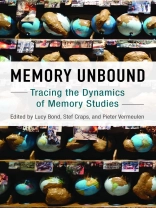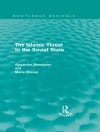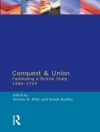Though still a relatively young field, memory studies has undergone significant transformations since it first coalesced as an area of inquiry. Increasingly, scholars understand memory to be a fluid, dynamic, unbound phenomenon—a process rather than a reified object. Embodying just such an elastic approach, this state-of-the-field collection systematically explores the transcultural, transgenerational, transmedial, and transdisciplinary dimensions of memory—four key dynamics that have sometimes been studied in isolation but never in such an integrated manner. Memory Unbound places leading researchers in conversation with emerging voices in the field to recast our understanding of memory’s distinctive variability.
Tabla de materias
List of Illustrations
Introduction: Memory on the Move
Lucy Bond, Stef Craps, and Pieter Vermeulen
Chapter 1. Staging Shared Memory: Je Veux voir and L’Empreinte de l’ange
Max Silverman
Chapter 2. Remembering the Indonesian Killings: The Act of Killing and the Global Memory Imperative
Rosanne Kennedy
Chapter 3.Transnational Memory and the Construction of History through Mass Media
Aleida Assmann
Chapter 4. Small Acts of Repair: The Unclaimed Legacy of the Romanian Holocaust
Marianne Hirsch and Leo Spitzer
Chapter 5. Fictions of Generational Memory: Caryl Phillips’s In the Falling Snow and Black British Writing in Times of Mnemonic Transition
Astrid Erll
Chapter 6. The Uses of Facebook for Examining Collective Memory: The Emergence of Nasser Facebook Pages in Egypt
Joyce van de Bildt
Chapter 7. Connective Memory: How Facebook Takes Charge of Your Past
José van Dijck
Chapter 8. Embodiments of Memory: Toward an Existential Approach to the Culture of Connectivity
Amanda Lagerkvist
Chapter 9. Metaphorical Memories of the Medieval Crusades after 9/11
Brian Johnsrud
Chapter 10. The Agency of Memory Objects: Tracing Memories of Soweto at Regina Mundi Church
Frauke Wiegand
Chapter 11. Cultural Memory Studies in the Epoch of the Anthropocene
Richard Crownshaw
Chapter 12. “Filled with Words”: Modeling the September 11 Digital Archive and the Utility of Digital Methods in the Study of Memory
Jessica K. Young
Bibliography
Index
Sobre el autor
Lucy Bond is a senior lecturer in English literature at the University of Westminster and a founder of the London Cultural Memory Consortium. She is the author of Frames of Memory after 9/11: Culture, Criticism, Politics, and Law (Palgrave Macmillan, 2015) and a coeditor (with Jessica Rapson) of The Transcultural Turn: Interrogating Memory between and beyond Borders (De Gruyter, 2014).












